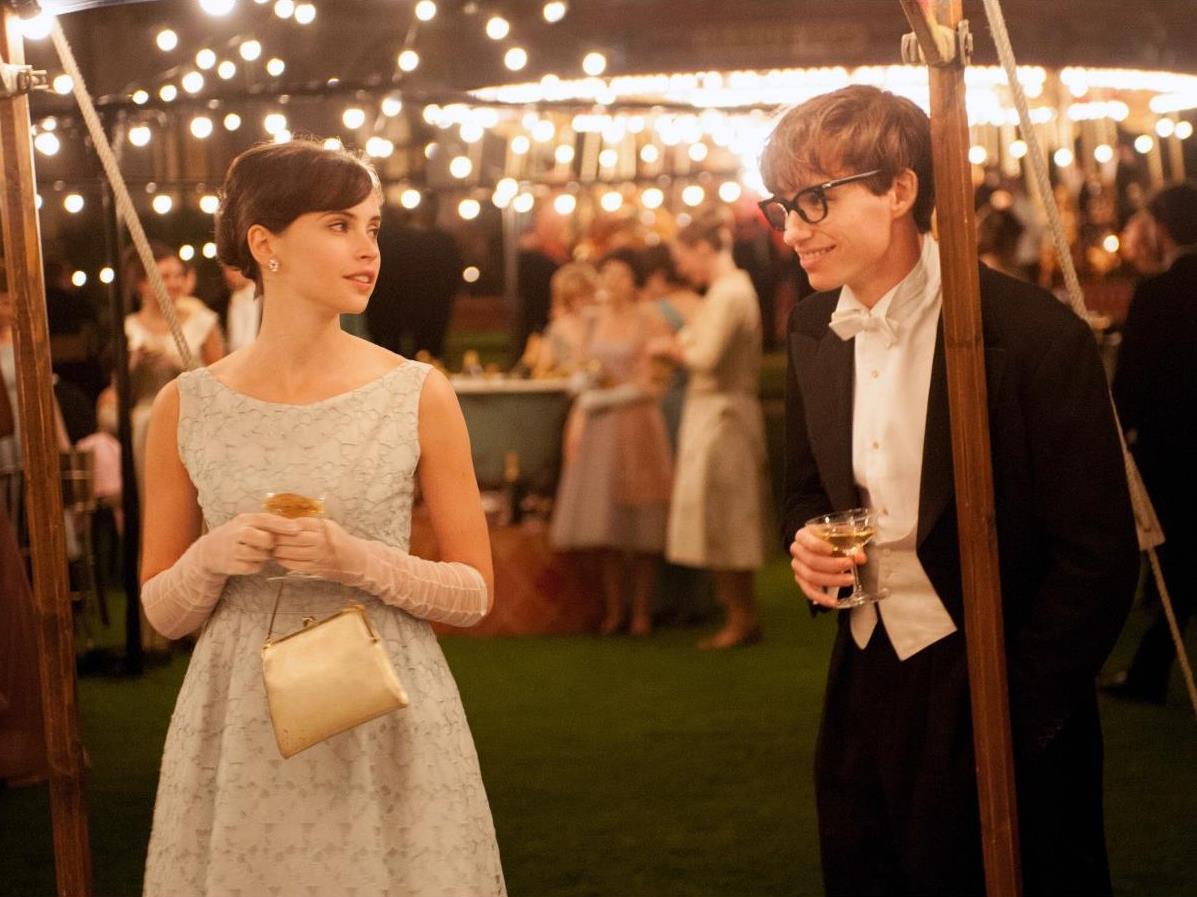Image: supplied
Biopics can rise and fall with their portrayals, the way in which an actor inhabits a character borne of reality, not fiction, often paramount to their effectiveness. Avoiding over-simplification while delving deeper than the known public persona requires commitment as well as balance, traits not always easy to display. Playing Stephen Hawking from his time studying astrophysics at Cambridge through to his ascension to the heights of his field, Eddie Redmayne (Les Misérables) doesn’t fail at this feat. He does more than look and sound the part; he wears the famed cosmologist’s increasingly slumped physicality with expressive subtlety, and conveys the tolls of Hawking’s passions and problems in the glimmer of his eyes.
Films about real-life figures can also find their fortunes tied to their chosen perspective, and to how they convey the mindset of their subject. Again, scratching more than just the surface is the aim, and communicating more than obvious thoughts and feelings the desired outcome. In The Theory of Everything, Hawking’s perception is key; it is his vision that the feature adopts again and again. Sometimes, director James Marsh (Shadow Dancer) steps into his head, showing the explosion of happiness that comes from a pleasant occasion, or channelling sorrow in simple moments, such spying the flames of a fire while struggling to put on a sweater. At other points, it prefers his vantage in shooting scenes from waist height, mimicking his wheelchair-bound position.
So it is that Redmayne’s canny enactment and the movie’s embrace of Hawking’s viewpoint combine to tell a tale of a brilliant man living with motor neurone disease while seeking to discover more about time, black holes, and the universe. The physicist is not the only distinctive presence, however, with the film based upon the memoir Travelling to Infinity: My Life with Stephen by Jane Wilde Hawking, his first wife. After meeting at a Cambridge party, Jane (Felicity Jones, The Amazing Spider-Man 2) and Stephen enjoyed a happy romance soon threatened by an unexpected diagnosis. As his health failed and his professional achievements accumulated, Jane’s devotion endured for decades through the bad and the good.
Better known for his documentaries Man on Wire and Project Nim than for narrative features such as The King and one third of the Red Riding trilogy, Marsh may excel in his casting – including the excellent Jones, ever the picture of conflicted duty – but otherwise he stays in agreeably safe territory. His film is a standard biopic that exceeds the average approach in two primary areas, remaining content with convention in others, particularly where science is concerned. Though Hawking’s quest for success provides an against-the-odds arc to explore, the details of his work are pushed aside in favour of relationship dramas. Predicable classroom, lecture and conference sequences are a feature, as is more than one attempt to explain several theories over the dinner table, with screenwriter Anthony McCarten (Death of a Superhero) saving his sparks of fascination for the science versus religion debate the main couple embody – and argue about several times over.
Ambition, too, earns the script’s attention, a fitting theme for an account of a man told in his early twenties that he had only two years to live. It may not extend to the elegant film itself, however handsome the colour-saturated, light-filled work of cinematographer Benoît Delhomme (A Most Wanted Man) and rousing the melodic score by composer Jóhann Jóhannsson (Prisoners) proves, but it does add another source of strain to domestic bliss under pressure from the outset. Indeed, as well the astute central portrayal in both performance and perception, it is as a polished and poised portrait of a marriage tested time and again that the feature best succeeds. The minutiae of Hawking’s endeavours might be glaringly absent, but the personal picture painted via a linear love story still moves in its emotions and insights.
Rating: 3.5 stars out of 5
The Theory of Everything
Director: James Marsh
UK, 2014, 123 mins
Release date: January 29
Distributor: Universal
Rated: PG
Actors:
Director:
Format:
Country:
Release:





